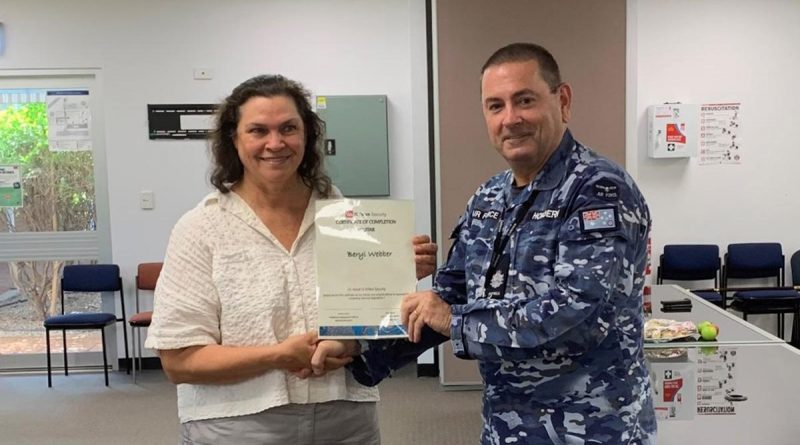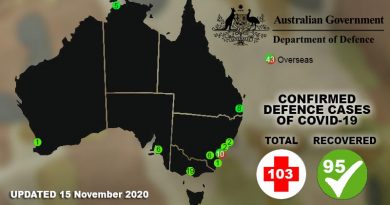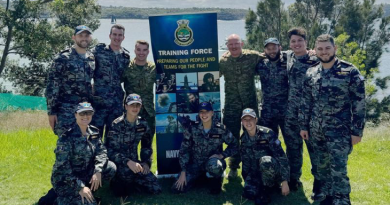Tindal security team welcomes new faces

Providing security on a Defence base couldn’t be more different from nursing people back to health in aged-care settings and hospitals.
CAPTION: Defence civilian Beryl Webber receives her graduation certificate after successfully completing the Certificate II in Security Operations course at RAAF Base Tindal, Northern Territory. Story by Sarah-Kate Melehan.
But Beryl Webber feels her two careers are actually closely aligned.
“As a nurse it is about caring for and looking after people, people who are sick and vulnerable and need help,” Ms Webber said.
“Working in security on a base is about protecting the base and its personnel and it’s about protecting the country and doing my bit for national security.”
The Katherine-based aged-care nurse is among eight Indigenous students to have completed the 10-day Certificate II in Security Operations course at RAAF Base Tindal.
The students received their much-anticipated certificates during a ceremony at the base on August 30.
The graduates are currently awaiting their security licences and, once received, will start working for Wilson Security at the base.
The Certificate II course is the minimum requirement for a person to be able to obtain a security licence in the Northern Territory.
The course was run by Wilson Security in partnership with a registered training organisation and via funding from the NT Department of Industry, Tourism and Trade.
Subjects included self-defence, emergency and evacuation procedures, how to apply legal and procedural requirements, risk assessments and work health and safety, patrolling premises and access control measures.
Department of Industry, Tourism and Trade Workforce Development Officer, Karyn Kalamaras, was instrumental in getting the program off the ground.
“Eight people started the course and eight people finished the course,” Ms Kalamaras said.
“It’s not only eight people now in a job, it’s their families too – it’s the children seeing their parents going to work all dressed up in a uniform, and being wonderful roles models,” she said.
Ms Webber will continue to work as a casual nurse in addition to security work, and says it’s also the social aspects of the role that touch her heart.
“I remember what it was like when working as a nurse and people would come in and the look on their faces, it was just relief that I was there,” Ms Webber said.
“They felt more comfortable talking to me than talking to the doctors.
“It’s all good giving kids leaflets [about job opportunities], but it’s when they actually see you in a uniform and in the role that it matters.”
.
.

.
.





